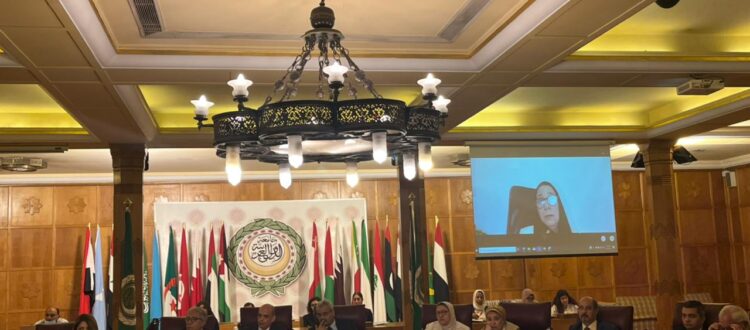The UN Environment Programme, in collaboration with the League of Arab States (LAS) and CEDARE, organized an event to launch the Arabic version of the sixth Global Environment Outlook (GEO-6)
On July 21st 2022, The United Nations Environment Programme (UN Environment Programme), in collaboration with the League of Arab States (جامعة الدول العربية – League of Arab States) and the Center for Environment and Development in the Arab Region and Europe (CEDARE), organized an event to launch the Arabic version of the sixth Global Environment Outlook (GEO-6). The event presented the fundamentals of the GEO process and explored the relevance of the main findings of the GEO-6 report for the region, the new approach for GEO-7 and the challenges of implementing transformative policies for the environment that respond to the root causes of the most pressing environmental issues of our day.
The objective of this event was to present, in a simple and evidence-based manner, the main environmental challenges of the region, and triggered an open and constructive discussion on the role of science and its ability to inform decision-making and the development of public policies.
The programme included recorded keynote speeches from UNEP Executive Director, Inger Andersen, and H.E. Dr Yasmine Fouad, Minister of Environment of Egypt, the current president of the Council of Arab Ministers Responsible for the Environment; as well as an informative technical panel discussion with GEO experts from across the Arabic-speaking region, followed by a media event.
The Global Environment Outlook (GEO) is UNEP’s flagship report on the environment, produced every 4 years. The findings from the sixth edition of the GEO (GEO-6) have detailed the three planetary crises that the world currently faces: climate change, biodiversity loss and pollution. The report stresses that traditional policies that attempt to clean-up environmental problems after they happen cannot keep pace with the rate of environmental degradation we are seeing today. What are needed are policies that transform broad systems, such as energy, food and waste, so that the root causes of environmental damage are prevented. GEO-6 and its findings, now easier to access for the Arab region, are highly relevant to Arabic-speaking audiences and decision-makers, especially in the lead up to COP27 that will take place in Sharm El Sheikh, Egypt.
The findings on water scarcity and water stress in the previous GEO-6 regional assessment for West Asia and the regional assessment for Africa are also very relevant for the peace and security of the region. Therefore, the transformations of the global energy, food and waste systems by 2050, called for in the GEO-6, if implemented in a thoughtful and responsible way, can bring many environmental, economic and social benefits for the Arabic speaking region. With the publication of the Arabic GEO-6, this detailed analysis, supported by an extensive expert-led and intergovernmental process, is now more accessible to all key Arabic-speaking audiences and decision-makers.
The process to produce the seventh edition of the GEO (GEO-7) has just started following a UNEA resolution approved at UNEA 5.2 in March 2022. The GEO-7 will be focused on proposing innovative solutions to the three planetary crises of climate change, biodiversity loss and pollution, exploring the transformations needed on the energy, food and waste systems over the next 25 years.

